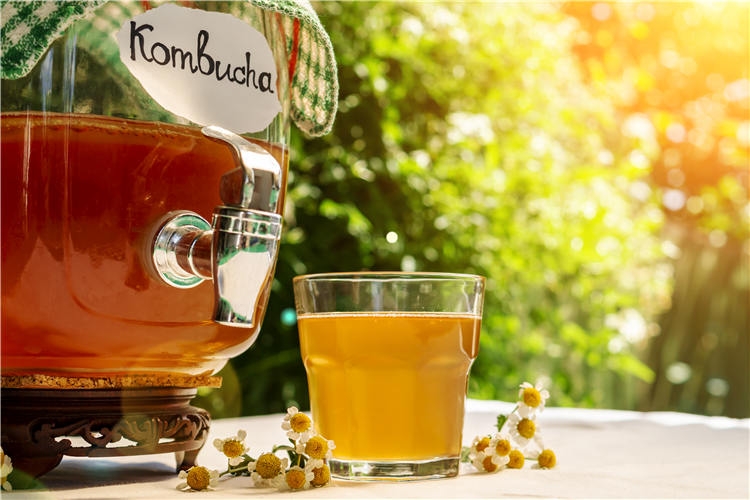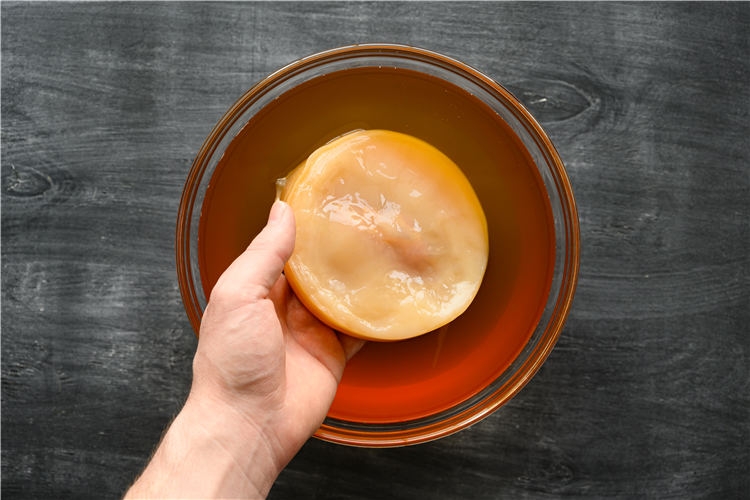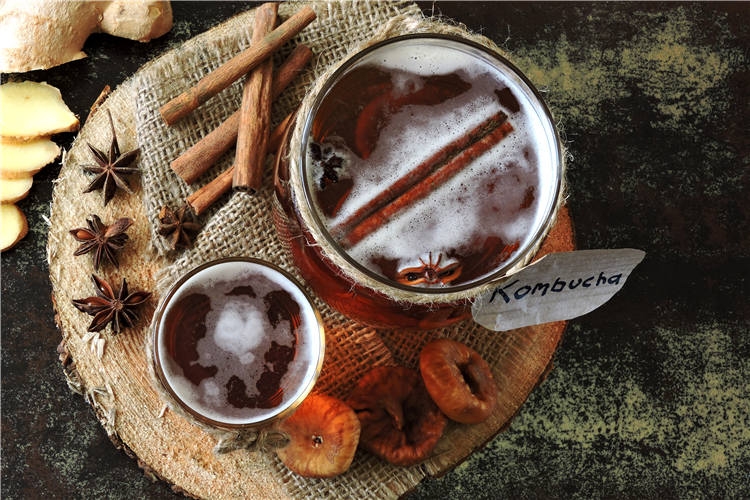Kombucha is a mildly fizzy, fermented drink made from yeast, sugar, and black tea.
Perhaps you are debating whether to try kombucha? Here you will know all about kombucha from this article :What is kombucha?kombucha Ingredients,Health Benefits and Side Effects. In the end of this article maybe you can find your interested questions about kombucha.

Fermented tea first originated in China about 2000years ago. At that time, Chinese tea was mostly used for medicinal purposes. The locals put sugar in the tea and fermented it to obtain a gelatinous substance, which was a symbiotic culture of bacteria and yeast, rich in various probiotics, and combined with the caffeine in the tea.As we all know now, tea polyphenols and other substances are benefit to health.
In the early 19th century, kombucha was brought to Russia and Japan. Finally, it spread from Japan to all over the world.
The basic ingredients in kombucha are yeast, sugar, and black tea. The mix is set aside for a week or more. During that time, bacteria and acids form in the drink, as well as a small amount of alcohol. This process is known as fermentation.
Kombucha bacteria includes lactic-acid bacteria, which can work as a probiotic. Kombucha also contains a healthy dose of B vitamins.
An average 100ml portion provides:

Kombucha is fizzy, tart, and just shy of sweet. Because it is rich in prebiotics/probiotics, which tastes like fruit vinegar or enzymes, It’s a bit tangy, and is fragrant with a certain fruitiness that will surprise you.
Kombucha is bright, brilliant, and effervescent. Usually brownish or amber in color, traditional kombucha sometimes has nebula-like specks floating around.
Kombucha not only has the nutritional benefits of tea such as tea polyphenols, but also rich in prebiotics/probiotics. Drinking in moderation can help maintain the normal functioning of the digestive system.
Kombucha is fermented by yeast, so it produces many nutrients beneficial to the human body, including: vitamin C, B1, B6, B12 and glucuronic acid. Drinking in moderation has the following 5 major benefits to the human body.
There have been reports of adverse effects such as upset stomach, infections and allergic reactions in people who drink kombucha. Especially if you make your own kombucha at home, which can cause contamination. If it’s not prepared properly, it can grow harmful bacteria or mold.
In addition, if you want to prepare kombucha by yourself, it is recommended to use acid-resistant containers such as ceramics and glass, and avoid using iron, aluminum, and plastic containers, so as not to cause the container to be dissolved by acid, causing plastic or metal substances to seep into the tea.

Kombucha is an acidic beverage and should be avoided by people with stomach problems
Since kombucha is fermented, it contains a variety of organic acids and the pH of kombucha is low, it is recommended that the daily consumption of kombucha should be limited to 240ml.
If you suffer from gastroesophageal reflux, gastric ulcer and other gastrointestinal diseases, you shouldn't drink to avoid exacerbating gastrointestinal symptoms.
In addition, the fermentation process of kombucha produces alcohol, so people who are allergic to alcohol, pregnant women, and children should not drink it. Although most of the sugar is converted into alcohol during the fermentation process, or used as nutrients for probiotics, people who need to control blood sugar and those who are doing weight management should pay attention to the amount of drinking.
The best time to drink kombucha will vary depending on the health benefits you want to pursue:
Drink for Breakfast: Healthy for Digestive Tract
Drink a cup of kombucha after getting up and before breakfast. The fasting state makes the probiotic flora more easily absorbed and helps maintain the digestive function throughout the next day.
If you have a sensitive stomach and it is not suitable to drink tea on an empty stomach, you can start drinking it with breakfast to let your stomach adapt slowly.
Drink in the afternoon: improve mental strength
Theanine balances out the small amount of caffeine in kombucha for a calming and centering effect, eliminating the caffeine crash of coffee or pick-me-up drinks.
The next time you feel drowsy, instead of drinking black tea or coffee, you might as well try a cup of kombucha to give you full energy for concentration!
In fact, there is no so-called right or wrong time to drink kombucha. Drink it when you wake up, drink it after exercising, or drink it while eating and snacking (to reduce guilt). As long as you consider the amount of drinking, it is actually suitable to drink kombucha at any time!
